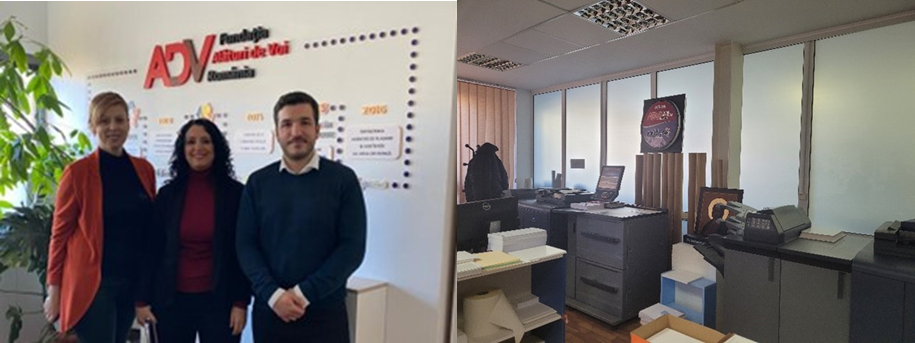Earlier this year, following virtual introductions, a D-WISE network delegation visited different Work Inclusion Social Enterprises (WISEs) based in countries beyond those represented within its membership, namely Bulgaria, Croatia, Finland and Romania. These visits aimed at further introducing the network to them, while better understanding their employment models.
Following the on-site visits, the D-WISE network is extremely happy to officially announce that its membership is growing. The following organizations already confirmed their interest in joining the work of the network:
- National Federation of Employers of Disabled People (NFRI), Bulgaria
- OSVIT, Croatia
- SOTEK Foundation, Finland
The D-WISE network members and partners can’t wait to start working together with NFRI, OSVIT and the Sotek Foundation. In the meantime, more information on these WISEs as well as the various visits that took place earlier this year can be found below.
Bulgaria
The National Federation of Employers of Disabled People (NFRI) is a Bulgarian non-profit organization created in 2000 with the aim of improving the conditions and labour inclusion of persons with disabilities, while representing and protecting the interests of its members, social enterprises employing persons with disabilities.
In March 2022, a delegation of the D-WISE Network had the opportunity to visit the NFRI headquarters in the capital city, Sofia, as well as some of their members. NFRI members are mainly small and medium enterprises operating under different legal forms: capital companies, municipal companies, NGOs and cooperatives. The visit provided the D-WISE delegation with an opportunity to see a relevant representation of their membership and activities, from a laundry to a wellness centre, to a greenhouse.
Additionally, NFRI also facilitated a meeting with the National Agency for People with Disabilities, which helped to better understand the national context.
In Bulgaria, enterprises employing persons with disabilities are formally registered with the National Agency, which allows them to apply for state funds through projects, have access to reserved contracts in public procurement, and benefit from specific tax regulations. To be eligible, at least 30% of their staff must be persons with disabilities. In a country with 700.000 persons with disabilities with an employment rate of under 10%, the sector works to provide persons with disabilities with stable full-time jobs in an integrated market-oriented environment, focusing on their individual capabilities and promoting their full participation in society.
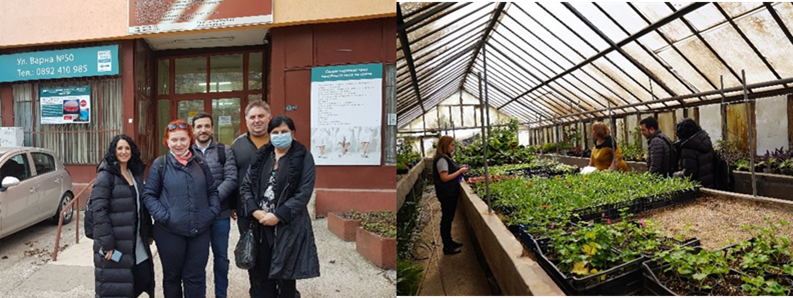
Croatia
OSVIT is a Croatian organization that represents providers working in the field of vocational rehabilitation and employment for persons with disabilities in Croatia, as well as sheltered and integrative enterprises.
Hosted by OSVIT, in April 2022 a D-WISE Network delegation had the opportunity to learn about the context and the situation of persons with disabilities in Croatia, through a comprehensive approach to specialized vocational rehabilitation services and a variety of enterprises employing persons with disabilities.
In Croatia, there are two different types of enterprises that employ persons with disabilities. On the one hand, sheltered enterprises, where at least 51% of the staff must be persons with disabilities, usually those with higher support needs. On the other, integrative enterprises, with at least 40% of employees with disabilities. The status of sheltered and integrative enterprises can be granted under a series of criteria to enterprises with very different legal forms: companies, cooperatives, institutions, etc.
The schedule of the visit of the D-WISE Network delegation included visits to both types of WISEs: the largest sheltered enterprise in Croatia, Uriho, and two integrative workshops, Labtex and Qahwa.
Uriho, founded in 1946, is the oldest and largest sheltered enterprise in Croatia, created with the mission to provide persons with disabilities with vocational rehabilitation and employment, with the ultimate goal to contribute to their full inclusion in society. Uriho has different production and administrative units, where persons with disabilities can be employed according to their abilities and preferences. Their activities include production and sale of clothing and footwear (with an important line for hospitals and the industry), ceramics and metals, leather goods, orthopaedics, cardboard and printing, and a wide range of finished products. 70% of their income derives from sales and 30% from the City of Zagreb.
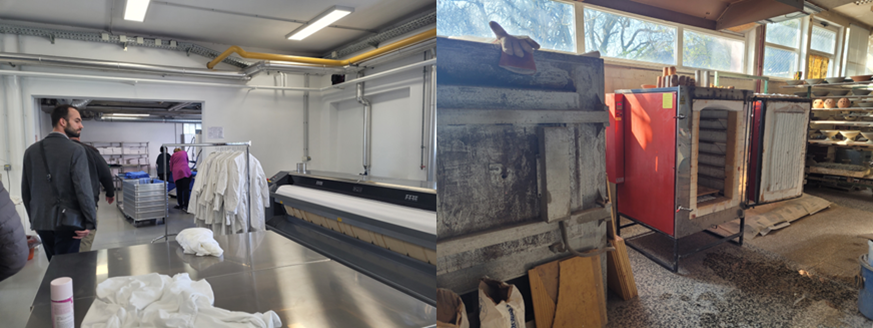
Labtex is an integrative enterprise operating in the textile sector. Their business lines include work clothes and uniforms for the health, catering and industrial sectors as well as bed linen for hotels, nursing homes and hospitals, among others.
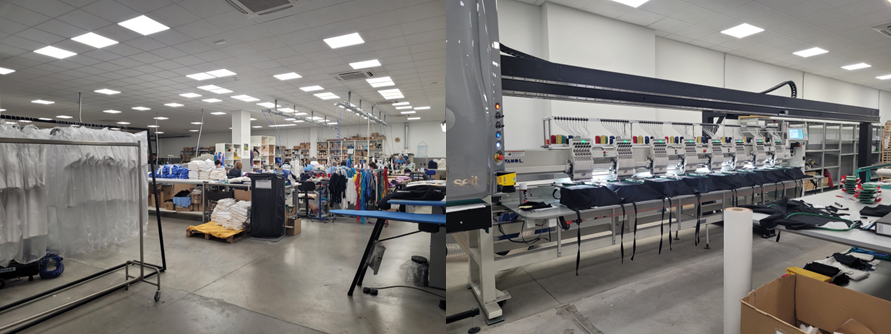
Qahwa is a specialty coffee shop and roastery, operating with the status of integrative enterprise. They serve both companies and individuals, offering their products in their physical store as well as online.
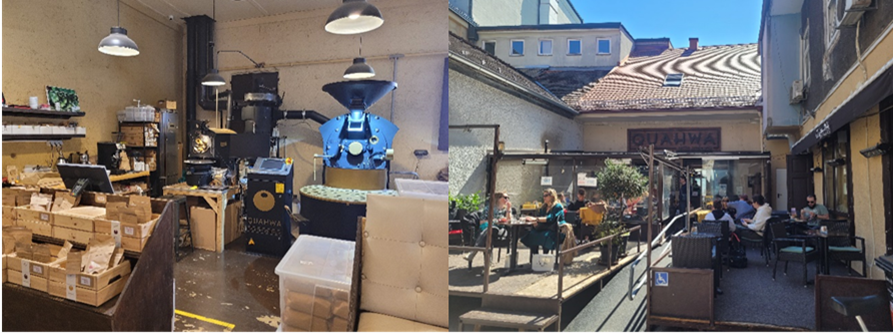
Finally, the programme also included a visit to one of the four Centres for Vocational Rehabilitation in Croatia (CPR), based in Zagreb. Their services are based on a multidisciplinary approach and include assessment of work abilities, labour market analysis, cooperation with employers, workplace analysis and vocational rehabilitation programs.
Finland
The SOTEK Foundation is a Finnish organization working for the rehabilitation and labour inclusion of persons with disabilities, in particular intellectual disabilities, long-term unemployed and people under threat of social exclusion. Based in the town of Kotka, its work covers the Southern Finland Province, one of the regions with highest unemployment rates in Finland.
The visit, which took place in March 2022, allowed the D-WISE Network to better understand the process that persons who contact the Foundation go through, from rehabilitation to inclusion in one of the different enterprises. Their model allows persons with disabilities and/or other vulnerabilities to access entry level jobs, focused in finding and improving their best capabilities so that they can, later on, join the open labour market. It supports them get accustomed to the working life; improve their self-esteem, working and functional capacity, and well-being; and maintain a regular routine, while strengthening their social skills. The transition to the open labour market is the final goal of SOTEK, and its success rate shows how the model is efficient.
Throughout the visit the D-WISE mission acknowledged different companies and workshops, covering a broad spectrum of activities, from coffee shops and sport venues to manufacturers of construction goods or clothing. The Goodwill system, which is spread around the region and managed by SOTEK, adds an extra approach with the same socioeconomic inclusion positive results. It also allows workers to explore and understand their own capacities through a system that includes many different tasks and training. The concept of stores open to the general public also facilitates the spread of the good practices developed by SOTEK across the local population.
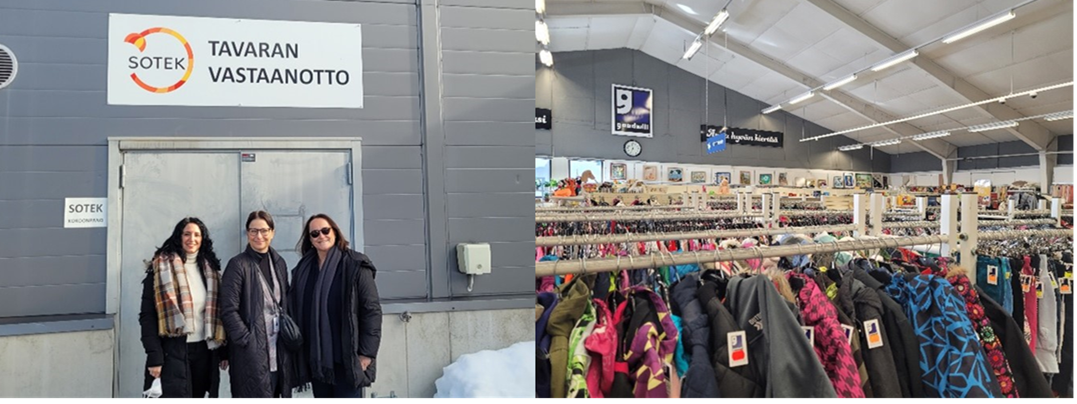
Romania
The D-WISE delegation visit to Romania covered both organisations based in Bucharest as well as in the northern city of Iași.
The trip started with a visit to Ateliere Fara Frontiere, a non-governmental entity that works for the employment of persons with disabilities as well as their transition to the open labour market. Through three different business lines embracing sustainability and inclusion – technological and clothing recycling, as well as an ecological farm outside Bucharest -, the organization is able to reach people who are far from the labour market and help them find their better skills, giving them the knowledge and support to look for employment in regular companies afterwards. This organisation has no public support and works exclusively thanks to the reinvestment of their revenues and donations.
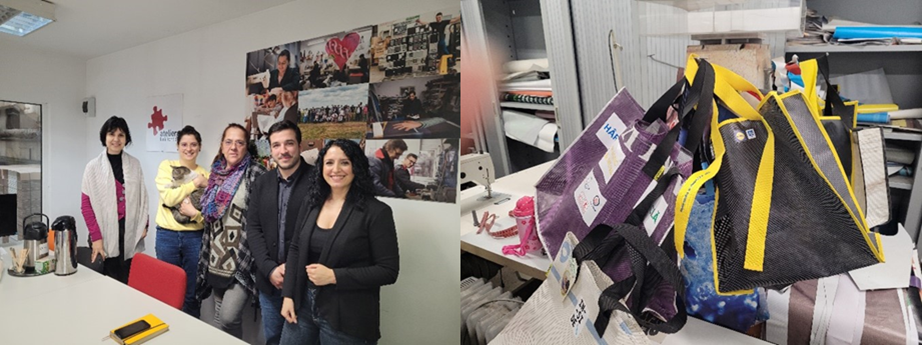
The Nazarcea Grup was the second organization visited in Bucharest. A public-funded and managed social enterprise that employs persons with disabilities – property of the Bucharest municipality -, the group is linked to a residential and care institution developed for persons with disabilities, as well focused on the further social and community-based inclusion of beneficiaries. Employees work in a variety of sectors, such as decorative ceramics, textile production, bakery and printing.
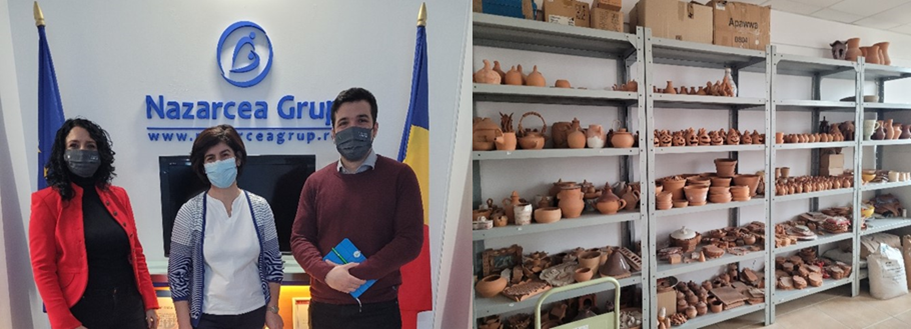
The last visit took place in Iași, to the social enterprise Alături de Voi. This organisation, the largest social enterprise employing persons with disabilities in Romania, is a private-owned entity that has worked hard for more than 20 years for the improving the employment and quality of the life of disadvantaged people. Thanks to the success of its business lines and its adaptability to the market needs, it currently employs over 100 persons, 40% of them with disabilities, through the first Work Integration Social Enterprise opened in Romania – UtilDeco.
The model created by Alături de Voi includes social services for groups at risk, prevention and promotion of their inclusion in the community, and a strong advocacy for the protection of the rights of persons with disabilities within the Romanian political landscape. It’s worth mentioning the effort placed on supporting new social startups, by funding rounds through an accelerator = that has helped over 40 initiatives. Some of these were visited by the D-WISE delegation, who could corroborate the good practices going on in sectors such as habilitation and rehabilitation of children with disabilities, creative and artistic training and education, candle manufacturing, among others.
